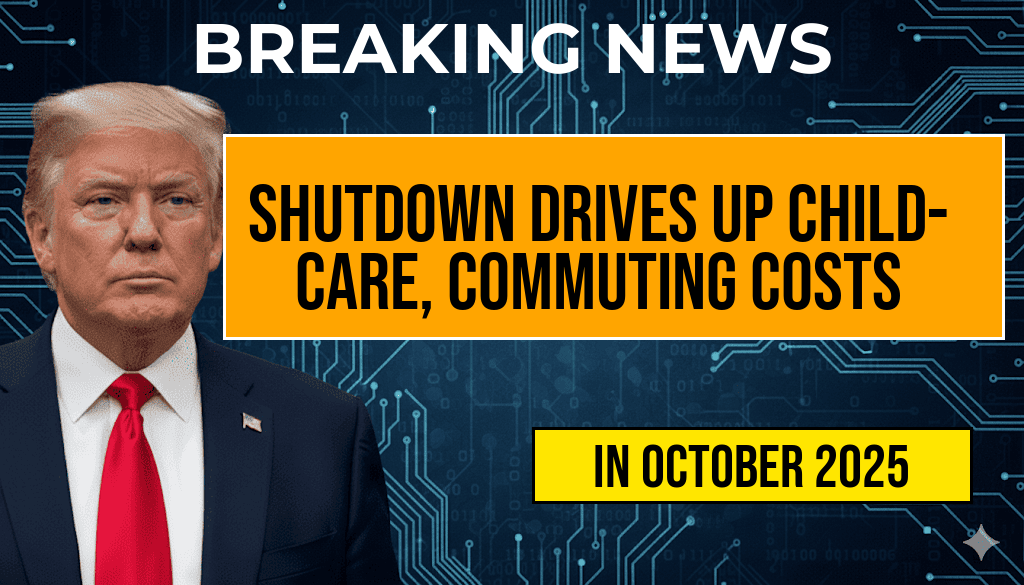As the government shutdown drags on, thousands of workers across the United States are facing the grim reality of $0 paychecks. Many individuals in both the public and private sectors are experiencing layoffs or furloughs, leaving them in urgent need of financial assistance. The situation has raised alarms among economists and social advocates who warn that the ripple effects of lost income could have long-lasting impacts on families and communities. Fortunately, various emergency cash options are available to help those affected navigate this challenging period. From government programs to nonprofit resources, individuals can explore multiple avenues to secure temporary financial relief.
Understanding the Impact of Layoffs and Furloughs
With the ongoing shutdown, many federal employees and contractors have been furloughed, while private sector companies are also implementing layoffs in response to decreased demand and uncertainty. According to the Bureau of Labor Statistics, the unemployment rate is projected to rise due to these economic pressures, putting additional strain on families already struggling to make ends meet.
Who is Affected?
- Federal workers on unpaid leave
- Contractors reliant on government projects
- Employees in industries like travel, hospitality, and retail
Emergency Cash Options Available
For those facing financial hardships, a variety of emergency cash options can provide immediate relief. Here are some resources to consider:
1. Unemployment Benefits
Eligible workers can file for unemployment benefits through their state’s labor department. This assistance can help cover basic living expenses while individuals search for new employment opportunities.
2. Government Assistance Programs
Programs like the Supplemental Nutrition Assistance Program (SNAP) and Temporary Assistance for Needy Families (TANF) can offer crucial support for families in need. These programs provide food assistance and cash benefits to help with everyday expenses.
3. Community and Nonprofit Resources
Local charities and nonprofit organizations often have emergency funds available for families facing financial crises. Organizations such as the United Way and the Salvation Army have resources dedicated to helping those in need during tough times. Individuals can find assistance by visiting their local United Way chapter’s website.
4. Short-Term Loans
While not always ideal, short-term loans from reputable lenders can provide quick cash to cover immediate needs. Borrowers should exercise caution and ensure they understand the terms and interest rates involved.
Financial Management During Crisis
In addition to seeking emergency funds, individuals should consider reviewing their financial management strategies. This includes creating a budget that prioritizes essential expenses and identifying areas where costs can be cut. Financial advisors recommend the following steps:
- Track all income and expenses diligently.
- Communicate with creditors about potential payment delays.
- Explore alternative sources of income, such as freelance work or gig economy opportunities.
Long-Term Solutions to Economic Challenges
The current situation starkly highlights the need for more robust safety nets for workers. Advocates are calling for policy changes that include better unemployment benefits, universal basic income, and more comprehensive healthcare options to support individuals during economic downturns. As the nation navigates these turbulent times, the conversation around worker rights and protections is more critical than ever.
Resources for More Information
For those seeking further information on available assistance programs, consider visiting the following links:
- Forbes on Unemployment Benefits
- Benefits.gov for Government Assistance Programs
- United Way for Community Resources
As the economic landscape continues to shift, it is imperative for those affected by the shutdown and layoffs to explore all available resources. With proactive measures and community support, individuals can find a path through these challenging times.
Frequently Asked Questions
What should I do if I receive a $0 paycheck due to the shutdown?
If you receive a $0 paycheck due to the shutdown, explore emergency cash options such as local assistance programs, community resources, or short-term loans from financial institutions. Consider reaching out to your employer for any potential support or clarification on your situation.
Are there any government programs available for those affected by layoffs?
Yes, there are several government programs designed to assist individuals affected by layoffs, including unemployment insurance and food assistance programs. Check with your state’s labor department for specific resources and eligibility requirements.
How can I apply for emergency cash assistance?
You can apply for emergency cash assistance through local nonprofit organizations, community action agencies, or state welfare offices. Many organizations have online applications or hotlines you can call for assistance.
What are some alternatives to financial aid during this crisis?
In addition to financial aid, consider options such as budgeting your expenses, negotiating payment plans with creditors, or seeking help from family and friends. Some community organizations also offer workshops on managing finances during tough times.
How long can I expect to receive assistance during the shutdown?
The duration of assistance you can receive may vary based on the program and your personal circumstances. Many government assistance programs have specific time limits, while community resources may offer support until you regain employment or financial stability.











